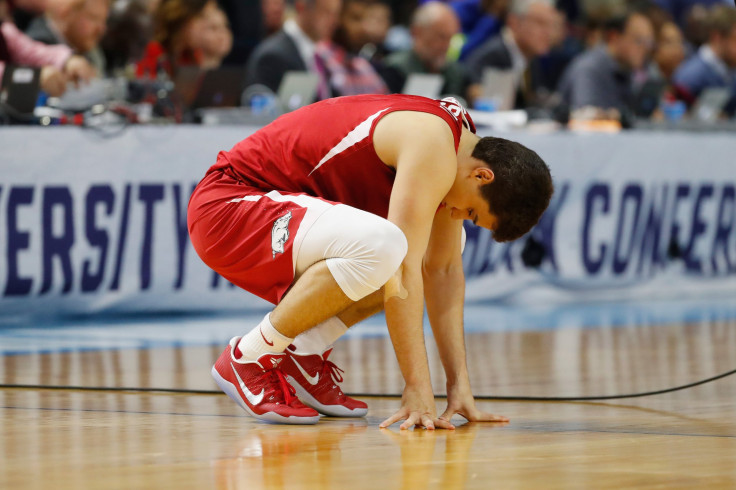Do March Madness Players Go To Class? Student-Athletes Still Have School Despite Basketball Success

On Sunday night, Luke Maye helped the University of North Carolina make the Final Four with a buzzer-beating shot in the NCAA Division I Basketball Tournament. On Monday morning, he was in class.
A Snapchat shared by UNC student Jack Sewell showed Maye, in a ballcap and track pants, receiving a standing ovation as he arrived for his Business 101 lecture early in the morning. "Has a career-defining game and still comes to his 8 a.m.," read the video clip's caption, which included a heart-eyes emoji.
Read: College Basketball's 5 Best Players In The Final Four
The definition of a student–athlete.
— Bleacher Report (@BleacherReport) March 27, 2017
UNC's Luke Maye attended his 8 am class today 👏 (via @JackSewell_) pic.twitter.com/VJa8SMTAOv
The UNC Tar Heels won over the University of Kentucky, 75 to 73, Sunday in the Elite Eight round of March Madness. Maye's shot — with 0.3 seconds left, according to ESPN — not only clinched the victory but also "was the best ending to the best game of the NCAA tournament so far," as James Dator wrote for SB Nation.
With all that excitement, it can be easy to forget that the players you're cheering for are college students with full schedules and academic responsibilities. A controversial 2014 study from Harvard University found that an average of 60 percent of students attended any given lecture. Athletes may be tempted to let classes fall by the wayside, as well, given that playing a sport often requires the hours of a full-time job.
But colleges and universities closely track student-athletes' attendance, with some institutions employing monitors who attend various lectures to watch whether players show up for class, Inside Higher Ed reported in 2015. Others fine absent students or threaten their eligibility to play sports.
"We have high expectations that athletes should be successful in class, and that begins with attending class," UNC assistant provost Michelle Brown told Inside Higher Ed at the time. "Coaches and teams take it on themselves to make sure players are attending class at every opportunity they can."
Read: Final Four Betting Lines For North Carolina-Oregon, Gonzaga-South Carolina
Bottom line: Athletes' academic habits are constantly under scrutiny, and UNC is no exception. UNC, in particular, came under fire in 2014 after an investigator found that university counselors had been encouraging student-athletes for years to enroll in fake classes where participants didn't have to regularly show up or do much work. The scandal is still unfolding, with the Associated Press reporting last week that UNC was set to soon respond to twice-modified charges from the NCAA.
© Copyright IBTimes 2024. All rights reserved.






















